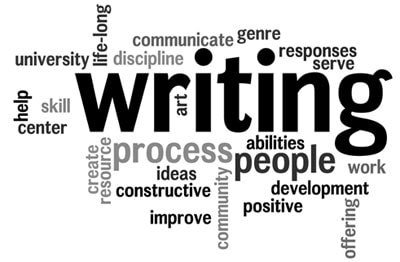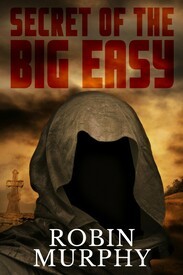Robin Murphy's Blog, page 2
April 1, 2019
Practical & Fun Resource Websites For Writers
 Every writer has their own way to research for their story, article, or novel. I thought I would share some websites that may be helpful for whatever you're writing. Some will be obviously familiar, whereas, others may not. Also, some are free, whereas, others may require a fee. I hope this information is helpful, and if you have any you'd like to add that can be useful for fellow writers, please share in the comments. As always...Keep on Writing! Don't forget to sign-up to receive my blog posts in your email.
Every writer has their own way to research for their story, article, or novel. I thought I would share some websites that may be helpful for whatever you're writing. Some will be obviously familiar, whereas, others may not. Also, some are free, whereas, others may require a fee. I hope this information is helpful, and if you have any you'd like to add that can be useful for fellow writers, please share in the comments. As always...Keep on Writing! Don't forget to sign-up to receive my blog posts in your email.The List:www.britannica.com - There is a TON of information on this website. Britannica.com makes searching for and finding facts easier and more trustworthy by bringing fact-checked information to the top right corner of your search results page. The Britannica Group serves students, families, scholars, community members, and educators around the world. While we may have originated in print, we have evolved into a powerhouse, multimedia educational brand to suit the evolving needs of lifelong learners today. A credit card is required to validate your free trial. You will not be charged during your free trial, and you can cancel at any time. If you decide not to cancel your membership, your service will continue at $1.44 a week (billed annually at $74.95) for your first year and renew after that year at the then-current rate annually. All memberships are billed annually. Merriam-Webster's Online - Free online source. According to Wikipedia - In 1996, Merriam-Webster launched its first website, which provided free access to an online dictionary and thesaurus. Merriam-Webster has also published dictionaries of synonyms, English usage, geography, biography, proper names, medical terms, sports terms, slang, Spanish/English, and numerous others. Consumers use the service to access definitions, spelling and synonyms via text message. Services also include Merriam-Webster's Word of the Day—and Open Dictionary, a wiki service that provides subscribers the opportunity to create and submit their own new words and definitions.Your Dictionary - Free online source. Definitions, grammar tips, word game help and more from 16 authoritative sources. There's a dictionary, thesaurus, examples, sentences, quotes, references, and foreign language dictionaries.Dogpile.com - A search engine that fetches information from 17 popular search engines at once in all formats, including text, images, videos, and audio.Library of Congress Online Catalog - Contains 17 million catalog records for books, serials, manuscripts, maps, music, recordings, images, and electronic resources in the Library of Congress collections.WhoWhere - Whowhere has been the premier people search and yellow pages search engine, helping our users find the people or businesses they are looking for using the Whowhere people search engine.Experts.com - Experts.com was established in 1994 to offer professionals a platform to showcase their expertise and specialized knowledge to millions of Internet users worldwide. Our members have direct control over monetizing their knowledge and expertise. In this day and age of connectedness, there is no need for a broker to mark up your fees or to increase the cost of retaining your services. Put your best foot forward with Experts.com.Journalist Express - Free membership will provide contacts for expert sources and a home page you can customize according to your interests. Their home page contains hundreds of links to specific research topics and directories. This has a wealth of information!Funds for Writers - FundsforWriters is an online resource for writers. You can be a thirty-year veteran or a part-time wannabe, but here at FundsforWriters (FFW), we consider you a writer none-the-less. We emphasize finding money to make writing a realistic career. Of course, you’d write anyway. That’s the way of a writer.Writers Weekly - Freelance job listings and new paying markets are delivered to your email every Wednesday when you sign up at this site.Absolute Write - Absolute Write is a comprehensive informational Website and community for writers of all levels. Absolute Write offers articles and information about fiction, nonfiction, screenwriting, freelancing, and copywriting. In addition, they provide information about editing, publishing, agents, and market research. You’ll find links to resources and a large and active online community of writers and publishing professionals.The Slot - Bill Walsh, of the Washington Post, keeps a lengthy list of style points and issues. This is a great site for the copyeditor in all of us.
Published on April 01, 2019 03:00
March 18, 2019
REPOST: MAKE YOUR OWN WEBSITE - UNDERSTANDING META TAGS/DATA

 I am not going into detail to show you how to create your own website, because basically I am a novice in this area. I have some html experience and I was able to design one of my websites through Adobe® Macromedia Dreamweaver®, but not enough to teach you properly. If you use any type of a wysiwyg web builder, such as Weebly, it'll allow you to easily add the keywords or phrases in a simple designated section without really needing to know html coding.
I am not going into detail to show you how to create your own website, because basically I am a novice in this area. I have some html experience and I was able to design one of my websites through Adobe® Macromedia Dreamweaver®, but not enough to teach you properly. If you use any type of a wysiwyg web builder, such as Weebly, it'll allow you to easily add the keywords or phrases in a simple designated section without really needing to know html coding.If you have experience in html coding, then you are lucky enough to do this for very little cost. You will first need to brand yourself, another words, what will the name of your website be? In order to find a name, you can go out to any number of “hosting” sites and use their search engine to see if the name you wish to use is available.
The hosting company I use is HyperMart. I absolutely love working with them and I think it competes very well with other cost-effective hosting sites I’ve seen around. They can first register your domain name, which is the name you’ve chosen for people to find you (i.e. www.rookiewriterssolutions.com). It is a low yearly fee and worth having. They can host your domain name or website for a low monthly cost. They will also walk you through step-by-step in creating your website, if you choose to tackle this task.
I suggest you do a search for website hosting and use what best suits you. But I strongly suggest you get a website or at least a blog to get your brand name out there. You need to come across as professional and that you are serious about you as an author. The first thing anyone will do when they hear about you and your book(s) is to check out your website. You know we all do it, so it’s best you have a website to share your product and knowledge.
Now, the next thing I’d like to talk about are Meta tags and metadata, which when I first heard it I said, “Huh”? Here is a Wikipedia definition of a meta tag: Meta elements are the HTML or XHTML element used to provide structured metadata about a Web page. Multiple Meta elements with different attributes are often used on the same page. Meta elements can be used to specify page description, keywords and any other metadata not provided through the other head elements and attributes.
The meta element has two uses: either to emulate the use of an HTTP response header, or to embed additional metadata within the HTML document.
With HTML up to and including HTML 4.01 and XHTML, there were four valid attributes: content, http-equiv, name and scheme. Under HTML 5 there are now five valid attributes, charset having been added. http-equiv is used to emulate an HTTP header, and name to embed metadata. The value of the statement, in either case, is contained in the content attribute, which is the only required attribute unless charset is given. Charset is used to indicate the character set of the document, and is available in HTML5.
Such elements must be placed as tags in the head section of an HTML or XHTML document.
Metadata is defined as a set of data that describes and gives information about other data.
You still may be saying “huh?”, but if you have someone else creating your website, they will know what is needed to place the Meta tag within the code on your home/index page of your website. This is basically any words and/or phrases pertaining to you, your genre, etc. It’s the art of having these descriptions or phrases placed in your website so it can be found when someone does a search that relates to you and/or your books. If you are writing about paranormal mystery, then this would be a key phrase you would want to include.
In the definition above about Meta tags, it states the use can be in the header (i.e. www.rookiewriterssolutions.com) or within the HTML document, which is the index page of your website. If you know code, these are strategically placed within the code, which took me awhile to figure out. If this is too much to take in, then have a website designer do this for you.
Here is an example from my index page or homepage, when I used DreamWeaver, of where I placed the coding not only within the index page but also in the header or title of my website, which looks like this:
Fiction Paranormal Mystery Author, Speaker, Women's Fiction,Travel Writer, Non-fiction
Why do you need Meta tags and metadata? These keywords or phrases hidden that are within the code is what will bring your website up within the first three pages of a search. That’s right, once you have these tags placed in your website, after a month or so, go out to a search engine and type in one of the key words or phrases you added and see where your website results land. You can periodically do that search and see how the results change. This is key is to have someone who knows nothing about you…find you.
The other sections you wish to have on your site can be a page that tells a little bit about you (i.e. Robin's Works), your books, any events you are attending or have attended, a link to your blog, and of course a contact page. You can add anything you like that describes more about you because reader’s love to learn about their new favorite author.
I’ll also include, although I know you savvy writers have great common sense, to add “all” of the social media you belong to on your index/home page. It’s very important for readers to have the ability to follow or like you in those different venues. I do believe it’s important to have quick buying links to your books, along with any book trailers you’ve done, and awards you’ve won. You may want to include an option to give away the first chapter of your book free for reader’s to get a sample of your writing. From this, you will receive their email to use to contact for future books you publish. But please be mindful and respectful not to spam them with too much information. It will turn them off. It’s important to include anything that will prove your credibility and professionalism.
As always, feel free to purchase my book A Complete How to Guide for Rookie Writers for more detailed step-by-step guidance on writing, self-publishing, book-trailers, marketing and more...and remember to Keep on Writing!
Published on March 18, 2019 03:30
March 4, 2019
Point and Shoot for Your Life on Audible
[image error] Excuse the shameless plug, but I'm thrilled to announce that Point and Shoot for Your Life is now on Audible, iTunes, and Amazon!
Here's a little bit about the book:
Seen on NBC, ABC & FOX and voted one of The 50 Best Indie Books of 2016.
Reviewed by Anne-Marie Reynolds for Readers' Favorite:
Point and Shoot for Your Life by Robin Murphy is a tale of mystery and suspense. Hannah Mills, local photographer, is struggling for work and to pay her rent. Great-Aunt Dorothy comes to the rescue from beyond the grave after she leaves Hannah a First Phase Indian Chief Navajo blanket, a very rare item worth at least a million dollars. That kind of money would set Hannah up for life. But, before she can take it to auction, her niece is kidnapped and a ransom demanded – the blanket. Hannah has to go to France to get her niece back, but she has no money to get there until she robs a bank. Arrested for the crime as she makes the drop in Paris, Hannah isn’t going quietly and she drags FBI agent Finn MacNally along with her for the ride. Can they find Mandy before it’s too late? Can they really win a fight against the biggest Russian human and drug trafficking ring or will their luck run out at the last minute?
Point and Shoot for Your Life by Robin Murphy is a funny book. A mixture of humor, murder, mystery, suspense and romance, it has all the ingredients of a rollicking good read and it delivered all it promised. I found myself laughing, cringing, and holding my breath at different points during the story as I hung on for the ride. This is a book with no let-up; it starts on a high and just keeps on going, action all the way. The plot was very clever, brilliantly written, and the characters really fitted the bill. This is a story that will leave you breathless and, by the time the end arrives, worn out and ready to let go. Really great story, well-written and good fun to read. Would love to see more of this.
Here's a little bit about the book:
Seen on NBC, ABC & FOX and voted one of The 50 Best Indie Books of 2016.
Reviewed by Anne-Marie Reynolds for Readers' Favorite:
Point and Shoot for Your Life by Robin Murphy is a tale of mystery and suspense. Hannah Mills, local photographer, is struggling for work and to pay her rent. Great-Aunt Dorothy comes to the rescue from beyond the grave after she leaves Hannah a First Phase Indian Chief Navajo blanket, a very rare item worth at least a million dollars. That kind of money would set Hannah up for life. But, before she can take it to auction, her niece is kidnapped and a ransom demanded – the blanket. Hannah has to go to France to get her niece back, but she has no money to get there until she robs a bank. Arrested for the crime as she makes the drop in Paris, Hannah isn’t going quietly and she drags FBI agent Finn MacNally along with her for the ride. Can they find Mandy before it’s too late? Can they really win a fight against the biggest Russian human and drug trafficking ring or will their luck run out at the last minute?
Point and Shoot for Your Life by Robin Murphy is a funny book. A mixture of humor, murder, mystery, suspense and romance, it has all the ingredients of a rollicking good read and it delivered all it promised. I found myself laughing, cringing, and holding my breath at different points during the story as I hung on for the ride. This is a book with no let-up; it starts on a high and just keeps on going, action all the way. The plot was very clever, brilliantly written, and the characters really fitted the bill. This is a story that will leave you breathless and, by the time the end arrives, worn out and ready to let go. Really great story, well-written and good fun to read. Would love to see more of this.
Published on March 04, 2019 05:00
February 25, 2019
Research - A Necessary Step In The Writing Process
 Whether you write books, newspaper articles, magazine stories, fiction or nonfiction, for children, young adults, or adults, you need to do your research. The smallest inaccuracy in your work will destroy the reader's confidence in your story. Eventually, they'll walk away and more than likely, not pick you back up again in the future.
Whether you write books, newspaper articles, magazine stories, fiction or nonfiction, for children, young adults, or adults, you need to do your research. The smallest inaccuracy in your work will destroy the reader's confidence in your story. Eventually, they'll walk away and more than likely, not pick you back up again in the future.It goes without saying to write what you care about or love to read. This helps when it comes time to research your subject. Whatever subject you choose to write about, having a passion for your topic will come through to the reader. Many writers take different paths when it comes to research but usually head in the same general direction.
One avenue is to find other books written on the period of time, important events, and facts on your particular subject. Try to skim, outline, and concentrate on the information you plan on gleaning from what you've read. Try to learn what was taking place in society during the period of your subject.
Another way to learn about your topic is to visit places that include your subject. I traveled to Sullivan's Island, SC because it was the setting of the first book in my paranormal mystery series, Sullivan's Secret . I was able to walk the streets and patron the establishments that are in my story. It felt as if I had literally stepped into my book. It was a great experience. I was able to explain the ocean air better, the smells and types of foods in restaurants, identify street distances, and get a feel for the people that live on the island. There's nothing worse than to describe a particular place or setting that is incorrect and have someone who lived there know it's wrong. They will more than likely lose interest and decide not to continue reading your book.
As you gather your information, be sure to categorize everything in such a way that you can come back to it as a reference. Do it either on note cards or a computer. Sometimes your research trail can go cold, and it will help to be able to return to a particular reference to see the broader context. Also, when help is needed, good records will help librarians help you. Librarians are our best resources. Don't forget to send a thank-you note. It'll be much appreciated.
You can also talk with professionals, professors, and hobbyists. Visit museums or clubs. Try to nurture a worldwide community of experts in the field of your subject. Read professional journals, search the Internet, note credentials, and build a community of contacts.
You won't always feel you have all of the needed research for your subject, but once the story is in your mind's eye and the fire is in you to write...then write. Some writers research and write at the same time. Others research first, then write. It's up to you what works best. There is no right or wrong way.
So, the bottom line is to really love your subject, read as much as you can about it, narrow your focus, create an outline, find your style of record keeping, ask for help from the experts, and then let the creative flow begin.
But always remember to...Keep on Writing!
source: Searching - A Research Guide for Writers
Published on February 25, 2019 03:00
February 11, 2019
TO WRITE A SERIES OR NOT TO WRITE A SERIES - PART 2
[image error] In this post I'll continue sharing tips and options if you should to write a series. One such option could be a sequel. Even if you had no intention of selling a series, you may want to consider a sequel before you send your book off to an agent or editor. When something works, the movie and publishing industries are anxious to keep the golden goose producing.
While You Wait - Have Your Sequel Idea Ready - You may decide not to write a sequel to your story, but writing a rough treatment for your current project is a good exercise nonetheless. In Sullivan's Secret, the story ends with Marie in the hospital, but the crime has been solved. The second book, Secret of the Big Easy, will have new secondary characters, but will carry the readers forward as they discover Marie's new psychic abilities, as well as being pulled into another crime dealing with the occult and voodoo. Book two will also be a stand-alone story, with a dramatic arc that will be resolved by the end of the book.
Keep the Reader Current - You want to be sure that your plot does not require a reader to read your book series in sequence. If a reader realizes that a key to the current story was given in the last book, and that book is not available, they will more than likely give up and abandon you.
Try not to constantly refer to earlier events. You need to write it in a way that lets the reader know what happened in the previous book, but be careful not to "information dump". It needs to be written clearly and concisely. You can also use it in dialogue, as in the example below:
Brigitte leaned forward revealing quite a bit of cleavage. “How long have y’all been investigating as a team? André mentioned y’all helped solve a case involving a serial killer that was plaguing your island.”
Marie smiled. “Yes, that’s somewhat true, and we’ve been investigating together for about six months.” She glanced over at Cory and proceeded after his approving nod. “I’m not sure what information André filled you in on, but I have the ability to see and talk to spirits. I’ve had this ability since I was twelve, but squelched it for the last eighteen years. Up until about six or seven months ago, my ability began to come back to me in full force. Along with me learning to channel that ability with the help of one of our team members and my very dear friend and mentor, a serial killer began a killing spree on the women in and around Sullivan’s Island.”
“I remember reading the article André brought to one of our meetings. This killer was an old friend of yours?” Jason blew smoke right into Gale’s face and ignored her muffled cough.
This example starts to bring in certain elements that occurred in the first book of the series without dumping too much information at once. It also increases the readers' curiosity to possibly go out and purchase the first book in the series.
Carry Your Story on to Book Two - Bridge the Gap - By using subplots and secondary character conflicts, it can provide powerful bridges to connect your stand-alone series books to each other. If you're writing a single plot series with a strong overarching story, the story itself will carry your reader from book to book. Just be sure to have the first book available.
Be Sure Not to Repeat - If you have a following of readers who have read your first book, then you'll need to be careful not to bore your readers describing the same characters they already know. One method to help with this issue is to place your characters into a scene that reveals much of the story world and shows character relationships. Remember to have your first chapter orient the new reader into your world, involve plenty of drama, and create that strong hook sentence. Try to show, don't tell. You don't want to drone on about who these people are, how they relate to each other, and what has happened up until now.
Finally, Revise, Revise, Revise - This goes without saying, but I had to say it. Remember to revise for story, revise for craft, and revise for polish.
I hope this has helped you decide whether to write a series, or not to write a series. Whatever you choose, I hope you always remember to...Keep on Writing!

While You Wait - Have Your Sequel Idea Ready - You may decide not to write a sequel to your story, but writing a rough treatment for your current project is a good exercise nonetheless. In Sullivan's Secret, the story ends with Marie in the hospital, but the crime has been solved. The second book, Secret of the Big Easy, will have new secondary characters, but will carry the readers forward as they discover Marie's new psychic abilities, as well as being pulled into another crime dealing with the occult and voodoo. Book two will also be a stand-alone story, with a dramatic arc that will be resolved by the end of the book.
Keep the Reader Current - You want to be sure that your plot does not require a reader to read your book series in sequence. If a reader realizes that a key to the current story was given in the last book, and that book is not available, they will more than likely give up and abandon you.
Try not to constantly refer to earlier events. You need to write it in a way that lets the reader know what happened in the previous book, but be careful not to "information dump". It needs to be written clearly and concisely. You can also use it in dialogue, as in the example below:
Brigitte leaned forward revealing quite a bit of cleavage. “How long have y’all been investigating as a team? André mentioned y’all helped solve a case involving a serial killer that was plaguing your island.”
Marie smiled. “Yes, that’s somewhat true, and we’ve been investigating together for about six months.” She glanced over at Cory and proceeded after his approving nod. “I’m not sure what information André filled you in on, but I have the ability to see and talk to spirits. I’ve had this ability since I was twelve, but squelched it for the last eighteen years. Up until about six or seven months ago, my ability began to come back to me in full force. Along with me learning to channel that ability with the help of one of our team members and my very dear friend and mentor, a serial killer began a killing spree on the women in and around Sullivan’s Island.”
“I remember reading the article André brought to one of our meetings. This killer was an old friend of yours?” Jason blew smoke right into Gale’s face and ignored her muffled cough.
This example starts to bring in certain elements that occurred in the first book of the series without dumping too much information at once. It also increases the readers' curiosity to possibly go out and purchase the first book in the series.
Carry Your Story on to Book Two - Bridge the Gap - By using subplots and secondary character conflicts, it can provide powerful bridges to connect your stand-alone series books to each other. If you're writing a single plot series with a strong overarching story, the story itself will carry your reader from book to book. Just be sure to have the first book available.
Be Sure Not to Repeat - If you have a following of readers who have read your first book, then you'll need to be careful not to bore your readers describing the same characters they already know. One method to help with this issue is to place your characters into a scene that reveals much of the story world and shows character relationships. Remember to have your first chapter orient the new reader into your world, involve plenty of drama, and create that strong hook sentence. Try to show, don't tell. You don't want to drone on about who these people are, how they relate to each other, and what has happened up until now.
Finally, Revise, Revise, Revise - This goes without saying, but I had to say it. Remember to revise for story, revise for craft, and revise for polish.
I hope this has helped you decide whether to write a series, or not to write a series. Whatever you choose, I hope you always remember to...Keep on Writing!

Published on February 11, 2019 03:30
February 4, 2019
To Write a Series or Not To Write a Series - Part 1
 Have you ever finished your story and then realized you missed your characters? That's what happened to me when I finished the first book in my paranormal mystery series, Sullivan's Secret (which is on Kindle promotion for .99 March 1-8) I realized that I could take it further, flesh out my characters, and develop a series. It sounded easy enough, but there are many determining factors that go into creating a series. I'm going to share some of them with you in this two-part post.
Have you ever finished your story and then realized you missed your characters? That's what happened to me when I finished the first book in my paranormal mystery series, Sullivan's Secret (which is on Kindle promotion for .99 March 1-8) I realized that I could take it further, flesh out my characters, and develop a series. It sounded easy enough, but there are many determining factors that go into creating a series. I'm going to share some of them with you in this two-part post.Stand-Alone Series - In a stand-alone series, each book is a story with the usual beginning, middle, and and end. It may continue for many books as characters grow and pursue long-term goals, but a reader who picks up the third book in the series will enjoy that book all by itself. Though it may refer to previous adventures, which may inspire a reader to rush out and buy those previous books, the book can stand on its own.
Slice of Bologna - Some series are written as a single, large story - broken down into several books. An example would be The Lord of the Rings. Unfortunately, if readers begin with book two, they will quite possibly flounder because early events impact the current story. First-time readers will have no introduction to the story world or its characters. This could be a benefit for the author because a reader will have to buy all three books to finish the story. But what happens if book one is out of stock? Readers probably won't buy books two and three if they can't begin with book one.
How to End the Story in a Series - You need to be able to entice your readers to continue with reading your series. They need to care about your characters. Are the characters real? Do they have ongoing concerns that are greater than one particular story? When readers get lost in the story, they're eager for more.
You'll need to figure out how to end the first book. The main conflict needs to be resolved, even if larger issues continue. But if you're writing a "slice of bologna" series, you'll only have one ending, which will come at the end of the final book in the series.
In my first book, Sullivan's Secret, my main character, Marie Bartek, discovers that her psychic abilities from an early age have returned. Marie has a great interest in the paranormal so she and her best-friend, Gale Winters, decided to organize a ghost investigation team, Sullivan's Island Paranormal Society, SIPS, to help those in need. During this process, a murder takes place on Sullivan's Island. Marie learns to channel her powers. When they find out that the spirits are trying to warn her of an evil presence on the island, Marie and her friends set out to bring a vicious serial killer to justice.
The book ends with a murder being solved, but the series continues with Marie's abilities growing, a new romance develops, the SIPS team continues to help those dealing with paranormal issues, all the while solving crimes. The immediate internal and external conflicts are resolved in the first book. Each story has an ending, but the series continues with a new adventure, characters grow in their own personal struggle, and conflicts change throughout each book, which entices readers to continue reading the series.
 Create a Roadmap for Your Series - If you feel like your book can become the first in a series, then it may be a good idea to sketch out a series plot before you begin. If you reach book three and realize you have the perfect plot event, but you killed off a certain minor character in book two.
Create a Roadmap for Your Series - If you feel like your book can become the first in a series, then it may be a good idea to sketch out a series plot before you begin. If you reach book three and realize you have the perfect plot event, but you killed off a certain minor character in book two.The Coming and Going of Series Characters - You may be wondering if every character in your series should be part of every book. In my series, the SIPS team plays a huge part in every book and indeed need to be in every book, but others come and go depending on their role and the conflict. My main character, Marie, is the center of the action, but the team is still part of what drives the stories forward.
If You Should Choose the Single-Character Series - If you choose this method, you may or may not need to plot out the entire series ahead of time. If you're planning a strong overarching story, it's a good idea to rough out that series-long story at the beginning. If you're writing a mystery series where each book is a new adventure involving your character, an overarching plan is not necessary. The main character will carry readers from one book to the next.
Stay tuned for next week's Part 2 - To Write a Series or Not Write a Series. Remember...Keep on Writing! [image error] Marie Bartek & the SIPS Team Series (5 Book Series)
Published on February 04, 2019 03:30
January 28, 2019
Pinpointing a Publisher and/or an Agent
[image error] Let's face it, we all dream of that magic moment when a publisher or an agent loves our book and wants to enter into a contract. It's an exciting experience, but once we've finished our story, it's hard to know the next steps to make that dream come true. There are many outlets to search, but I'm going to share a few that are trustworthy.
Helpful Links:Writer's Digest has an ebook titled, Guide To Literary Agents 2019 PublishersMarketplace.com - is a great place to research literary agents; not only do many agents have member pages there, but you can search the publishing deals database by genre, category, and/or keyword to pinpoint the best agents for your work.AgentQuery.com - About 1,000 agent listings and an excellent community/resource for any writer going through the query process.QueryTracker.net - About 200 publisher listings, and 1,000 agent listings.WritersMarket.com - About 400 to 600 agent listings. $5.99/month subscription fee. Find places to sell your writing, whether you've got a book, manuscript, or article idea. Manage your submissions with our easy-to-use record keeping tools. Stay abreast of the latest publishing industry news. Gain advanced publishing and marketing knowledge from our Q&A's with publishing experts. Know how much to charge for freelance gigs with our popular pay rate chart. Industry listings updated in real time—subscribers are the first to gain access to the new opportunities. Use information specific to your writing needs—whether you're interested in fiction, nonfiction, poetry, children's, scriptwriting, or agents—with our niche-specific pages.The Guide to Literary Agents Blog - is also an excellent resource for news and views related to literary agents. You'll need to do a lot of research to be sure that you're seeking an agent or publisher for the genre of your story. Make a list and be sure to read the writer's guidelines very carefully on how they wish you to submit the required information. If you market your book to large publishers, you'll almost certainly need to acquire an agent to submit the manuscript for you. There are many thoughts and discussions on this topic. You need to do what is best for you.
If you go the agent route, please stick to searching for one who belongs to the Association of Authors' Representatives (AAR). This is a professional organization of agents, and all members must abide by its code of ethics. Again, be sure you follow their guidelines for your submission. Stay away from ANY agent requesting upfront money to read your manuscript! Also, beware of an agent reaching out to you. They rarely need new clients and virtually never solicit them. Good agents know writers will come to them. Remember to be persistent in your search. Don't get discouraged by the "no thanks" response. Believe in your book!
The Components of a Submission Package - While you'll find a wide variation in what agents or publishers ask to see, submission packages contain the standard components: query and/or cover letter, synopsis, and chapters. In my book, A Complete How To Guide for Rookie Writers , I share detailed information with screenshots to help you with what is needed for these components. But I'll give a brief description of these below:Query/Cover Letter - Is simply a brief letter to an agent or editor saying, "I am submitting my type of book. Are you interested?" You'll receive a "yes" or "no." If it's a yes, they should tell you exactly what they want to see at that point.Synopsis - They're written in present tense no matter what tense the novel uses, and they follow a single viewpoint character through the plot, even if the story involves more than one viewpoint character. I hope this information helps you move forward in the publishing process. Good luck, and remember...Keep on Writing!
Helpful Links:Writer's Digest has an ebook titled, Guide To Literary Agents 2019 PublishersMarketplace.com - is a great place to research literary agents; not only do many agents have member pages there, but you can search the publishing deals database by genre, category, and/or keyword to pinpoint the best agents for your work.AgentQuery.com - About 1,000 agent listings and an excellent community/resource for any writer going through the query process.QueryTracker.net - About 200 publisher listings, and 1,000 agent listings.WritersMarket.com - About 400 to 600 agent listings. $5.99/month subscription fee. Find places to sell your writing, whether you've got a book, manuscript, or article idea. Manage your submissions with our easy-to-use record keeping tools. Stay abreast of the latest publishing industry news. Gain advanced publishing and marketing knowledge from our Q&A's with publishing experts. Know how much to charge for freelance gigs with our popular pay rate chart. Industry listings updated in real time—subscribers are the first to gain access to the new opportunities. Use information specific to your writing needs—whether you're interested in fiction, nonfiction, poetry, children's, scriptwriting, or agents—with our niche-specific pages.The Guide to Literary Agents Blog - is also an excellent resource for news and views related to literary agents. You'll need to do a lot of research to be sure that you're seeking an agent or publisher for the genre of your story. Make a list and be sure to read the writer's guidelines very carefully on how they wish you to submit the required information. If you market your book to large publishers, you'll almost certainly need to acquire an agent to submit the manuscript for you. There are many thoughts and discussions on this topic. You need to do what is best for you.
If you go the agent route, please stick to searching for one who belongs to the Association of Authors' Representatives (AAR). This is a professional organization of agents, and all members must abide by its code of ethics. Again, be sure you follow their guidelines for your submission. Stay away from ANY agent requesting upfront money to read your manuscript! Also, beware of an agent reaching out to you. They rarely need new clients and virtually never solicit them. Good agents know writers will come to them. Remember to be persistent in your search. Don't get discouraged by the "no thanks" response. Believe in your book!
The Components of a Submission Package - While you'll find a wide variation in what agents or publishers ask to see, submission packages contain the standard components: query and/or cover letter, synopsis, and chapters. In my book, A Complete How To Guide for Rookie Writers , I share detailed information with screenshots to help you with what is needed for these components. But I'll give a brief description of these below:Query/Cover Letter - Is simply a brief letter to an agent or editor saying, "I am submitting my type of book. Are you interested?" You'll receive a "yes" or "no." If it's a yes, they should tell you exactly what they want to see at that point.Synopsis - They're written in present tense no matter what tense the novel uses, and they follow a single viewpoint character through the plot, even if the story involves more than one viewpoint character. I hope this information helps you move forward in the publishing process. Good luck, and remember...Keep on Writing!
Published on January 28, 2019 04:00
January 21, 2019
Find Your Own Revision Strategy - Part 3
 Craft Issues - Style & Readability - Craft has more to do with your use of paragraphs, sentences, and words and less with larger issues of your story. This is where you'll look for aesthetics, grammar, and listening to the flow of words the way you'd listen to music. Look for awkward phrasing, tired sentence flow, and repetitious word choice.
Craft Issues - Style & Readability - Craft has more to do with your use of paragraphs, sentences, and words and less with larger issues of your story. This is where you'll look for aesthetics, grammar, and listening to the flow of words the way you'd listen to music. Look for awkward phrasing, tired sentence flow, and repetitious word choice.Paragraph Procession - How long should your paragraph be? This is a common topic of conversation among writers. Each paragraph should address a new topic. Each time a topic changes, begin a new paragraph. For example, your character walks into a room and looks around, which could be one paragraph. Then he hears a noise in another room, and goes to check it out, you would begin a new paragraph. A paragraph should be at least three lines. Too long of a paragraph can drag a story out, whereas, too many short paragraphs can make a story feel choppy.
Remove Empty Words - An example would be the to be verbs (is, are, was, were). They add nothing to your story. Remove them. You may have to rewrite, but it'll be worth the work. Here's an example of some to be verbs and how you can remove them:
John was a very handsome man. He was tall with green eyes and brown hair and liked to swing on Grandpa's rope swing.
A better way to write this sentence could be:
Tall as a Kurgan Warrior, John pumped Grandpa's rope swing clear to the top branches, his brown hair flying, green eyes bright with laughter.
Use Active Voice - Using active voice will give readers stronger images of the scenes. It will also do wonders for your prose. The cat grabbed the toy mouse is active voice. The toy mouse was grabbed by the cat would be passive voice.
Beware of Your Tenses - Be careful not to switch from past to present tense as the tension builds in a scene. Most fiction genres are told in past tense, whether in first-person or third-person point of view. The story comes to life. Present tense seems to annoy readers.
Watch Out for the "inglys" - Those Pesky Adverbs - There isn't anything wrong with adverbs. They do serve a purpose when used properly as long as they enrich the meaning of an adjective such as velvety blue dress. Marie said angrily, tells us her mood. But showing more lets the readers figure out for themselves that Mare is angry. Example, "Go fly a kite." Marie glared at Sarah. There's no question of Marie's emotional state.
Be Specific - Don't Use a Generic Placeholder - You want to bring readers so completely into your world that they'll forget they're reading words. It's much harder for readers to lose themselves in a generic "basement" than in a "shadowy, freezing cellar that smells of mildew." Be descriptive. Explain the type of lunch your character grabbed on her way to the beach. Don't just say she grabbed a lunch, tell your readers she grabbed a pear and a handful of cashews. Mimic real life!
Don't Date Your Story - Try to use references to current culture sparingly because your book will be on the bookshelves 10 or 20 years from now. It may be tempting to reference the hot new band or sports car, just remember cultural icons and fads come and go.
Speak the Language - Be sure to use the correct jargon if your character is a lawyer, doctor, member of the military, etc. No matter what genre you write in, you need to speak the right language through your characters. Example, The doctor made a fast, deep slash down the middle of her abdomen, from her rib cage to her pubis, and then grabbed retractors and pulled her open.
Be Consistent - This is vital for any story. You need to be sure you keep things consistent, such as point of view, how your characters look and what they're wearing. You don't want to have a character that wears glasses in one chapter to suddenly develop 20/20 vision without them (i.e., awakened in the middle of the night and not having your character reach for their glasses to see).
I hope these tips in Parts 1-3 have helped you create your own revision strategy. And remember...Keep on Writing!
source: Long Ridge Writers Group
Published on January 21, 2019 04:00
January 14, 2019
Find Your Own Revision Strategy - Part 2
 In Part 1, we discussed the process of finding your own strategy of revising your novel. In Part 2, we'll continue that process to help you discover your own approach to making your story great.
In Part 1, we discussed the process of finding your own strategy of revising your novel. In Part 2, we'll continue that process to help you discover your own approach to making your story great.Bringing Dialogue to Life - When you revise be sure your dialogue includes not only your character's actual words, but glimpses of body language. Read your dialogue out loud, as if you're an actor on stage. You can even have a friend read the other parts. Acting out scenes in your story can give you a better sense of how your characters sound. Are they realistic?
The Double-Jointed Character - Walk through your scenes to make sure they're physically possible and realistic. Be sure your characters haven't traveled east only to have readers realize they've driven over a cliff, or if your hero swings a sword in his right hand, can he really grab a necklace from a pillar with the other? You must pay attention to details. Mistakes will cause your credibility to evaporate and lose your readers.
Listening to Your Inner Voice - As you continue to revise, you'll become more aware of the series of events that take place in your story. Your first draft doesn't give you the large picture. As you read each scene, pay attention to your own reactions. Is it dragging along? Don't be afraid to cut scenes out of your story. If a scene has too long of a description, you may need to remove the unnecessary sections so you can advance the plot, enrich the setting, and deepen the characterization.
Whining About Your Characters - Sometimes we writers complain about our characters as if they're troublesome. It may be fun to imagine our characters as real people, which is what you strive to do as you create them, but you must remember you have the final say over what they do. If it looks as though your character is following along with the main plot, then it may be your creative brain saying you've created a three-dimensional character that would not, as a real person, do what your plot demands. If this is the case, you may need to change the plot. Don't panic. You can introduce a new character whose behavior will plausibly force your main character into the course of action they would not take otherwise. Use your imagination and find some person or circumstance to alter events in your story, so your main character is compelled to react appropriately.
Avoid the Cliche Character - You know what I'm talking about, the abusive husband, the overbearing boss, the scheming girlfriend, the bully. If you're not careful, they may end up in your story in place of real characters. As you work through your first revision, pay attention to your secondary characters. Is each one a unique person? Does each one have a hint of backstory? Are their actions believable? Could you meet this person on the street? A few individual traits can turn a cardboard character into someone your readers will love.
Deserted Island in the Middle - At some point, your plot will seem boring. This can just be writer fatigue. Many times, working on a new project for a few days, or weeks, will bring fresh life to your story. Just take a break! Sometimes you just run out of dramatic plot elements before you get to the climax. A way to help you through this is to start asking yourself, what if? What if a new character shows up with a connection to one of the main characters? What if something unexpected happens? Now your characters have to deal with the new situation.
Chapter Too Short? - You realize that one of your chapters is too short. It has great scenes and a great dramatic arc, but it's only five pages, and most of your chapters are 15 pages long. Now what? Determine if your chapter is moving briskly along, or is it slow and comatose? If it feels as though it's zipping along, perhaps you can add a complication. Your characters can have a brief encounter with something or someone unexpected that could reveal something important. If it just isn't possible to expand this short chapter, you may be able to take this chapter fragment into the next chapter. Trim unnecessary scenes and incorporate your short chapter into the subsequent one. A chapter that runs longer than usual is less noticeable to a reader than one that runs short.
Stay tuned next week for Part 3, and remember...Keep on Writing!
source: Long Ridge Writers Group
Published on January 14, 2019 05:00
January 7, 2019
Find Your Own Revision Strategy - Part 1
Published on January 07, 2019 04:00


 As you write your novel, you're immersed in your story. You know your characters intimately, but that crystal-clear vision is inside your head. Revision allows you to see where you need to add detail, and where words are in the way of your story. Nothing is perfect in the first draft. Making revisions is the only way to take your story from good to outstanding.
As you write your novel, you're immersed in your story. You know your characters intimately, but that crystal-clear vision is inside your head. Revision allows you to see where you need to add detail, and where words are in the way of your story. Nothing is perfect in the first draft. Making revisions is the only way to take your story from good to outstanding.

